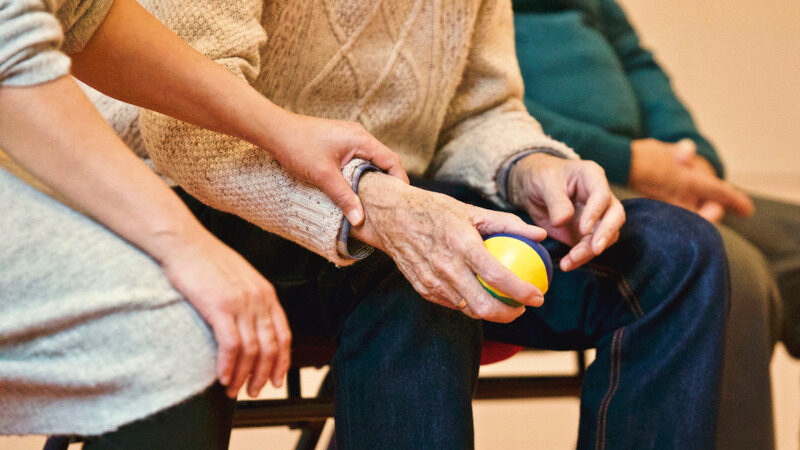Do you call yourself a caregiver or care partner? Whatever name you have for the tasks that you do, or whatever name you call yourself when you are providing care to a patient, everyone, at some time in their lives will be a caregiver. If you haven’t been one, if you’re not one now, you will be one – it’s just a matter of time. And, if you’re reading this and think you’re not a caregiver, let’s take a closer look at who a caregiver is:

1)“Temporary” caregiver: likely a spouse – We usually think of this as someone who is an older person, but your spouse could be younger, especially in a temporary caregiver situation. They may be sick, recovering from surgery, or perhaps have been in an accident.
2)“Serious Diagnosis” caregiver: You might become a caregiver or care partner for a spouse or someone else if they get a serious diagnosis – for example, they’re diagnosed with cancer, stroke, traumatic brain injury, MS, Parkinson’s, Alzheimer’s or other dementia, HIV/Aids or perhaps they returned from military service with an injury or PTSD.
3)“Sandwich generation” caregiver: you have children or teens at home and you also care for aging parents or other advanced age relatives.
4)“Working” care partner: You have a job and have the responsibility of being a caregiver for someone in your family, or another person that you care about.
5)“Distance” care partner: Usually this would be for an aging parent, but as we know, many people don’t live near family – their family is many miles away.
6)“Child’s” caregiver: You’re a parent and caregiver to an underage child.
7)“Adult Child” care partner: You may have an adult child that is no longer in your home, but who still requires assistance or oversight.
8)“Surrogate” care partner: You are a surrogate care partner if you are stepping in to help a close, mutual relative or friend when their loved who had been their caregiver passes.
Next, here are six questions that caregivers consider:
- What kind of caregiver are you? Think about the types that are outlined here; are you one of them? Perhaps you will think of others.
- Ask yourself: In what ways has your life been impacted positively and negatively as a caregiver or care partner?
- Where am I getting or going to get resources for myself, as I walk that care partner path? Make a list of questions you need answers to.
- If you’re struggling with being a caregiver or care partner, perhaps explore why you’re a care partner. That is not a selfish question. It’s real. SOMETIMES – and please don’t misunderstand me, it helps to see if there are other options for getting additional help, so that we can care for ourselves and be the best care partner to our loved one possible. So the “why” is really important. It opens the door up for honest review, personal care taking and choices.
- When will I become a care partner or caregiver, if I’m not one already? Is there a situation in the not to distant future that I really need to look at and begin to think about? You don’t have to and don’t panic. Obsessing about it, going over and over something in your head won’t be helpful. You don’t have to overly examine the what if’s – that’s not healthy. Merely allow yourself to pose the question. Looking at it this way certainly isn’t the only way, but few of us like to be blind sided by situations in life. If this is not a comfortable question at this time, it’s ok to forget about it.
- If I’m a caregiver now, how can I utilize the best practice ideas for care-giving today – both for myself and the person I’m caring for? For example, will I find new tech to help me manage things that I’m doing now? Will I add something new to my personal routine or to my care-giving routine? Will I change or delete something from the current routine that I or we’ve been doing? How can I replace that thing in a healthy or productive way?
These are a few suggestions that other caregivers have put into practice to make their work healthier both for themselves and the patients they care for.
If you would like to explore more about care giving or want to review these and other questions you may have about being a care partner, contact me for a personal consultation. Find out how working with a professional Patient Advocate can help.